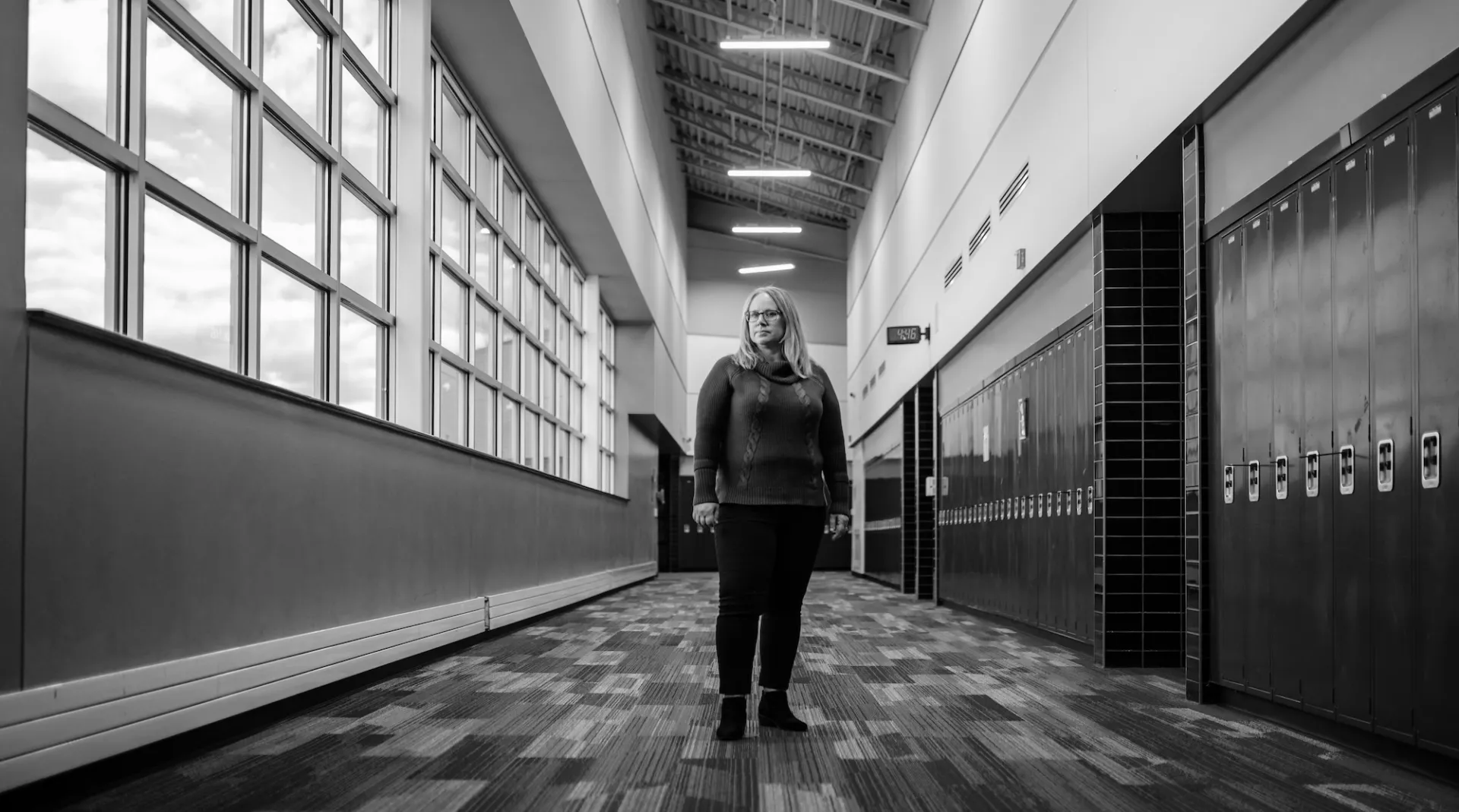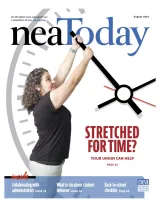Key Takeaways
- New laws in Iowa and Tennessee make it possible for local districts to allow educators to carry concealed weapons.
- Many educators are concerned about the safety risks that arming educators poses for the entire school community.
- A new resource from NEA and Everytown for Gun Safety offers sound gun violence prevention strategies for schools.
Iowa teacher and statehouse Rep. Molly Buck had an ideal expert to consult for feedback on a proposed bill last year: her dad. The bill was HF 2586, which would make educators eligible for a permit that would allow them to carry concealed weapons in schools. Her dad is a former Nebraska state patrol officer who spent much of his career training other tactical officers.
“I almost never talk politics with my dad—he’s a rock-ribbed Republican,” says Buck, a member of the Iowa State Education Association (ISEA). But it turned out that he agreed with his Democrat daughter that teachers should absolutely not be armed.
“My dad explained that even with regular, advanced tactical training, some officers aren’t as good in high stress situations as others, and educators simply don’t have any of that training,” says Buck. “It doesn’t even work on a practical level—even if I do think I’m capable of taking down a shooter, who’s taking care of my 25 frightened 4th-graders?”
Though Buck was a vocal opponent of the bill, the conservative-dominated legislature passed it in April. Tennessee also passed a bill allowing educators to carry concealed weapons in schools. A similar bill passed in Wyoming, but was later vetoed by the governor.
Why This? Why Now?
There has been a sharp spike in school shootings over the past five years, and 2023 saw the most ever—348 shootings in K-12 schools and 30 on college campuses.
School shootings with fatalities and injuries often prompt a response in state legislatures, with proposals that range from solid, research-backed ideas to curb gun violence to potentially dangerous plans, including efforts to arm teachers.
NEA tracked roughly three dozen proposed gun laws this legislative session. At least nine of them would have put more guns in schools, by arming teachers and other staff members. Though most of those efforts ultimately failed, the laws passed in Iowa and Tennessee are deeply concerning to many educators who live in those states, regardless of their views on gun ownership in general.

ISEA and allies were able to stop bills to arm teachers in previous legislative sessions chiefly because they could show that the companies that insure the school districts would not offer liability coverage if educators were carrying firearms.
“The way the legislators pushing this bill got around it is by providing qualified immunity both to the district and the school personnel,” explains Melissa Peterson, ISEA Legislative and Policy Director. That means if an educator injures or kills someone when responding to an incident, both the employee and the school district are free of financial liability.
In such situations, Tennessee’s law provides immunity from monetary claims to the district, but not the school employee, a fact that the Tennessee Education Association is working hard to inform its members about.
The two laws share several features in common. Both leave the decision whether or not to arm educators a matter of local control: School boards will decide whether to allow their employees to carry a firearm at school. Both laws also require that if educators are armed, weapons are concealed at all times, and which school personnel are carrying firearms would be kept strictly confidential—a feature that does not sit well with many educators.
“My students’ safety and well-being are paramount,” says Sarah Amos, a Response to Intervention and parent involvement coordinator at Vonore Elementary School in Monroe County.
“My students deserve to be protected by someone whose sole concern is their safety—not a fellow educator balancing 100 different things in a school day,” Amos says. “At the end of the day, we just want to focus on teaching.”
Elections: Key to Curbing Gun Violence
Making progress in keeping schools and communities safer from gun violence begins with elections.
In 2023, ISEA helped elect progressive candidates to the school board of the Ankeny Community School District, where state Rep. Molly Buck teaches. That school board was one of the first in Iowa to vote against allowing educators to carry concealed weapons, which Buck believes will keep the district’s nearly 13,000 students safer.
The Des Moines Independent Community School District, which serves more than 30,000 students, and the Council Bluffs Community School District, which serves 9,000 students, have also opted out of arming educators.
Buck knows that her colleagues in the state legislature genuinely want to curb gun violence, “but a large faction believes that the only thing that stops a bad guy with a gun is a good guy with a gun,” she says. “But in reality, more guns just put more people in danger. It’s time for us to focus on prevention.”
Discover evidence-based strategies to reduce the risk of incidents of gun violence in schools in this guide, created by NEA and the Everytown for Gun Safety Support Fund: https://www.nea.org/resource-library/gun-violence-prevention-response-guide








